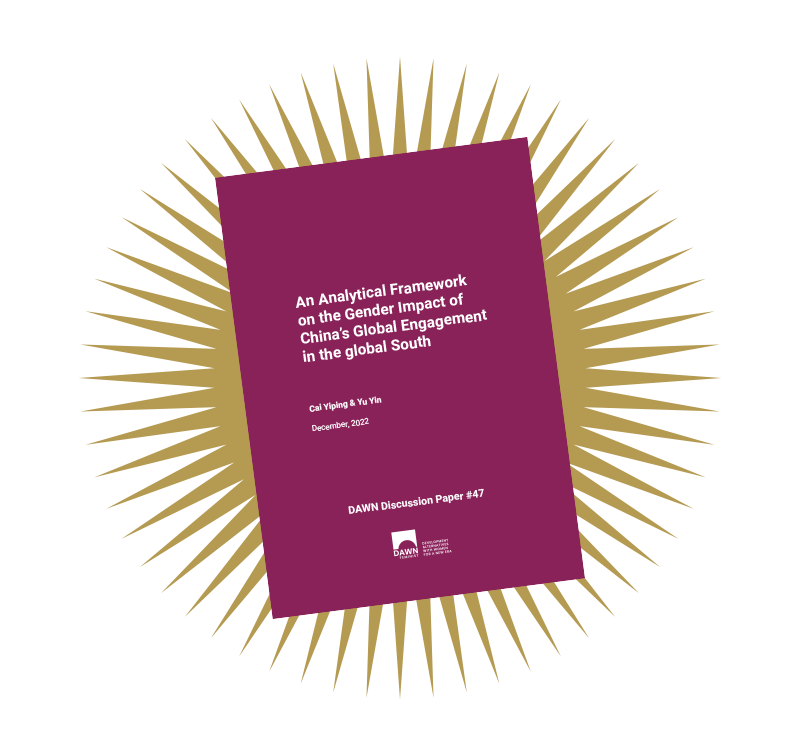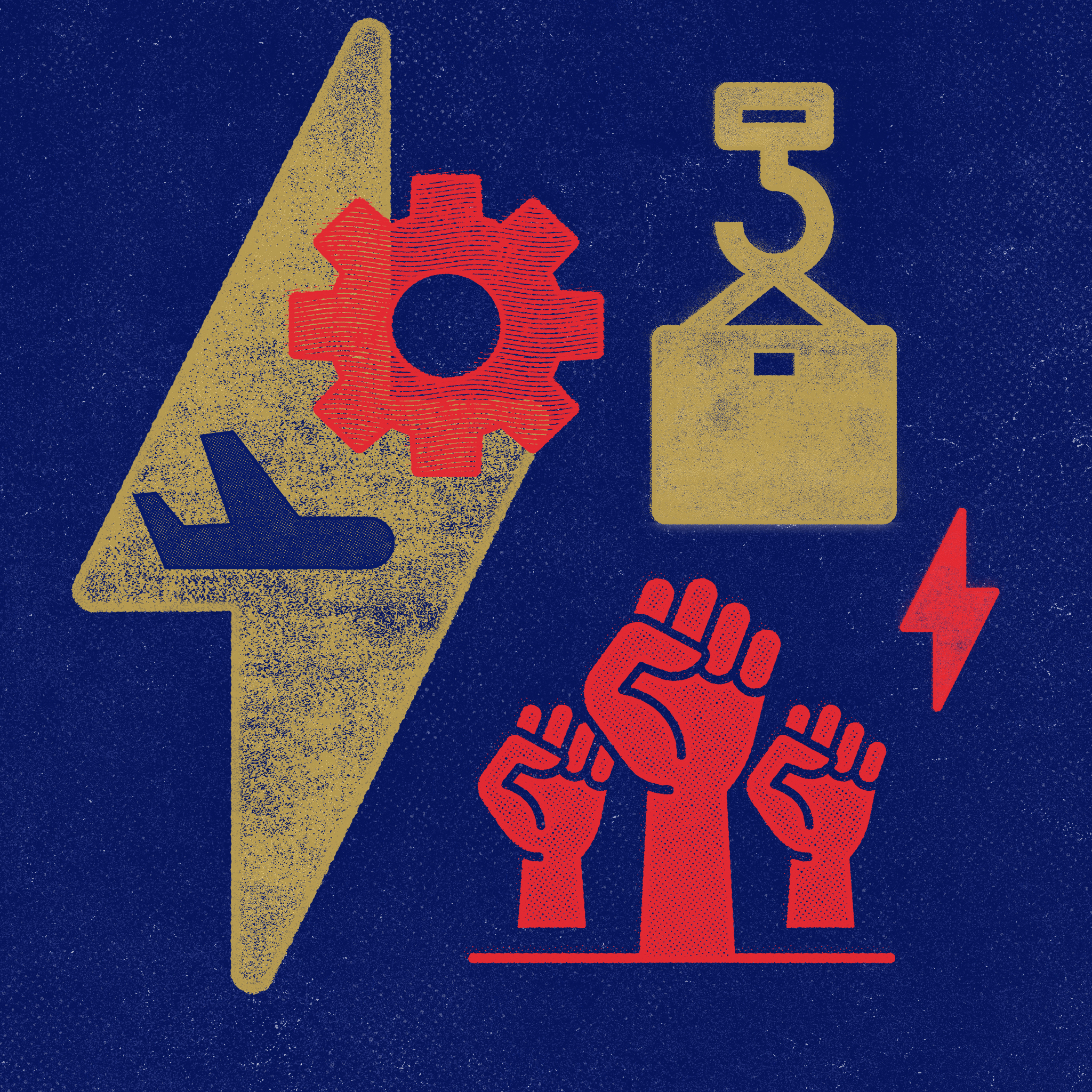
¡EL NUEVO LIBRO DE DAWN
This exploratory research brings together scholars with extensive and diverse disciplinary backgrounds from various regions of the Global South to examine emblematic cases, from Nigeria and the Solomon Islands to Peru and Zimbabwe, analyzing the profound and multidimensional implications of China’s engagement on women’s lives in the global South.
Book available in Spanish and Chinese. English edition is coming soon.
As China deploys its most ambitious international policies ever, we dive into the intersection of geopolitics, regional dynamics, and gender. This comprehensive project sheds light on the gender impact of China’s global engagement via the Belt and Road Initiative, the BRICS and much more. It explores the hidden narratives behind these initiatives, and their effects on society, the environment, human rights, and especially on women in the global South. Scroll down to learn more and follow us on social media for updates.
The past two decades have witnessed a heightened research interest in the emerging field of “Global China”. This field interrogates China’s role in and its profound influence on the global stage. A myriad of studies, initiatives and media reports have focused on China’s global footprint; its overseas investments, especially the Belt and Road Initiative, the political, socio-economic, environmental and human rights implications; and its influence on geopolitics and regional dynamics. However, not enough attention has been paid to the gender aspect of Global China, and the issue of gender and sexuality has been largely ignored.
With China’s increasing global commitment to gender equality and women’s development at various international forums and in international cooperation programs, gender issues have been given greater prominence and attention in the country’s foreign policy. This has prompted researchers and activists to raise concerns about the use of gendered discourses in soft power propaganda in diplomacy and its implications for gender politics in China and across the world.
In collaboration with researchers and activists, DAWN is developing an analysis to understand China’s global economic, political and security expansion, and its profound impacts on gender equality and women’s human rights in the global South. This analytical framework paper is based on the review of existing literature on themes related to gender and Global China, including but not limited to the Chinese government’s official documents and policy guidelines, academic research as well as reports and analyses by civil society groups located both inside and outside China.
The framework examines and synthesizes the main theories, methods and arguments of the current research on this subject; identifies the knowledge gaps; and suggests topics and methodologies for further research to be conducted by scholars in the form of case studies set in different regions of the South.
Discover how China’s evolving positions on gender equality are shaping international cooperation and development, as we unveil our findings from eight in-depth case studies from Africa, Asia, The Pacific, Latin America and the Caribbean.

Each case study will be aligned with the analytical framework paper and further explore one or more of the following questions from a regional and country context:
● What role does gender play in China’s global engagement, for example, in its strategic engagement in multilateral mechanisms such as the UN and other new institutions, and/or its negotiations of bilateral or multilateral trade agreements; its initiation of South-South cooperation narratives and practices; and its implementation of multilateral financiers’ social and environmental safeguards?
● How do Chinese investment projects, such as the BRI and other international development aid projects, influence gender equality, women’s lives, and their human rights in the local community and neighborhood?
● As a “new actor”, do China’s overseas investments and development programs differ from those of traditional donors or investors in terms of gender policy and gender-related impact assessment? If so, how? If not, why?
● How do Southern feminists and social movements strengthen women’s rights and gender equality, and obtain social and environmental justice in the face of potentially adverse impacts of Chinese foreign aid and investments?

Download now the Analytical Framework on the Gender Impact of China’s Global Engagement in the global South
We call upon a Southern feminist vision to deconstruct the unequal power matrix, decolonize knowledge production and decentralize the state actor, regardless of whether it is located in the South or the North. We contend that the perspectives and experiences of women from the global South should be placed at the center of these analyses, which is only possible through dialogue, collaboration and solidarity.







